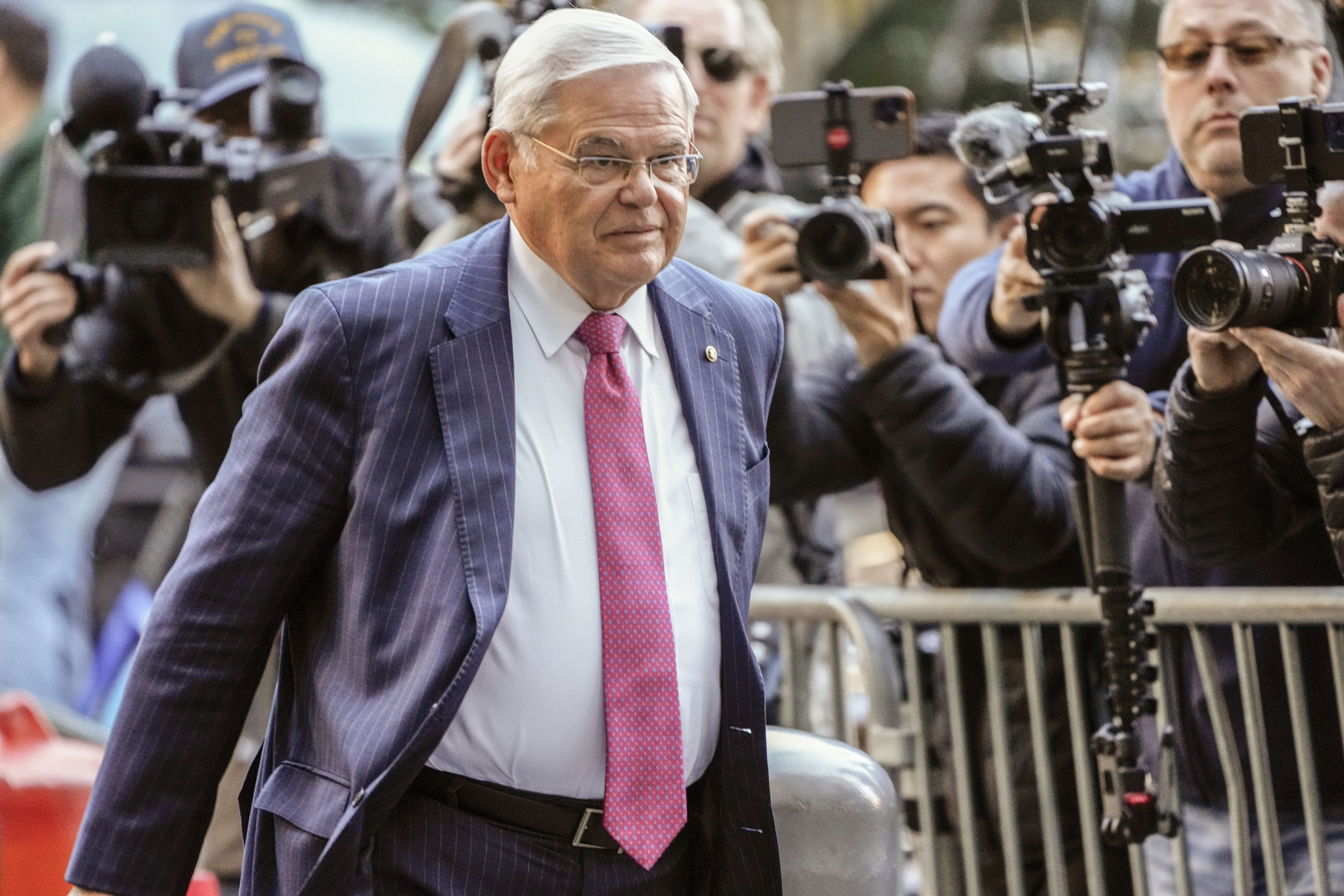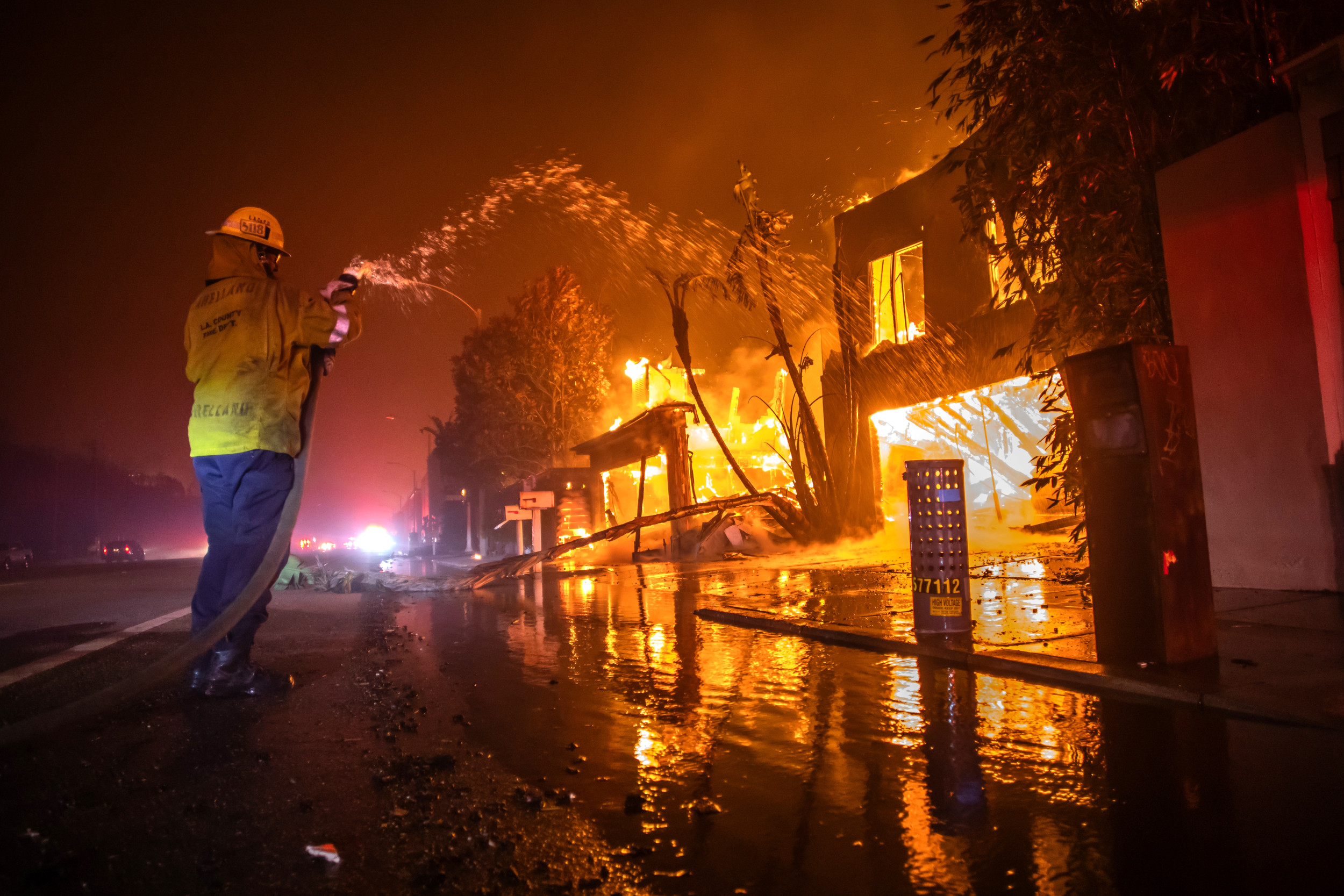State Farm CEO Jon Farney is facing scrutiny for the company canceling policies before the California wildfires that have seen thousands of structures destroyed across Los Angeles and 10 people killed.
Newsweek reached out to State Farm for comment via email.
Why It Matters
Wildfires have left parts of Los Angeles decimated, with more than 10,000 homes and other structures destroyed since Tuesday, according to the Associated Press, leaving many residents homeless. Many celebrities have lost their homes in the fires, including Paris Hilton, Spencer Pratt and Heidi Montag, Eugene Levy, Miles Teller, Adam Brody and Leighton Meester.
State Farm, one of California's largest insurers, canceled hundreds of homeowners' policies in Pacific Palisades last summer. By April 2024, the company announced it would have discontinued 72,000 policies for houses and apartments statewide, including 30,000 homes, according to ABC 7. Among these, approximately 1,600 insured homes in Pacific Palisades lost coverage due to the decision.
The total cost of the fires to Los Angeles is estimated to be between $135 billion and $150 billion, which amounts to nearly 4 percent of the annual GDP of the state of California, according to AccuWeather.

What To Know
Certain areas were hit particularly hard by State Farm's cancelations. In ZIP code 95033, located in the Santa Cruz mountains, more than 65 percent of policies were canceled last summer. Similarly, nearly 48 percent of policies in ZIP code 95409, near Santa Rosa, were discontinued, CBS News reported.
The cancellations followed State Farm's earlier announcement nine months prior that it would stop issuing new homeowners' policies in California. At the time, the company stated that while it supported the state's "wildfire loss mitigation effort," the decision was "necessary to take these actions now to improve the company's financial strength."
In March 2024, State Farm Vice President Denise Hardin addressed the matter in a letter to Insurance Commissioner Ricardo Lara. She acknowledged the difficulty of the decision, describing it as one made "reluctantly" but necessary to secure the company's future in the face of growing risks.
Who Is Jon Farney?
Farney is the CEO of State Farm. He became CEO last year after joining the company in 1993, serving in various roles, including assistant vice president for securities products, assistant vice president for planning and analysis, vice president for financial operations and operations vice president. He was promoted to senior vice president, treasurer and chief financial officer in 2016 before becoming CEO in June 2024. He replaced former CEO Michael Tipsord.
At the time, Farney said: "It's a privilege to follow Michael as CEO of this great company and lead an incredible team of more than 19,000 independent contractor agents and 65,000 employees who are committed every day to serving our customers. We'll push ourselves to continually improve so we're positioned to help even more people manage the risks of everyday life, recover from the unexpected and realize their dreams."
In a press release from March 2024, when Farney's appointment as CEO was announced, State Farm said both Tipsord and Farney had expressed to company leaders the company's role in its "mission to help people."
What People Are Saying
A spokesperson for State Farm previously told Newsweek: "Our number one priority right now is the safety of our customers, agents and employees impacted by the fires and assisting our customers in the midst of this tragedy."
AccuWeather Chief Meteorologist Jonathan Porter said: "These fast-moving, wind-driven infernos have created one of the costliest wildfire disasters in modern U.S. history. Hurricane-force winds sent flames ripping through neighborhoods filled with multi-million-dollar homes. The devastation left behind is heartbreaking and the economic toll is staggering. To put this into perspective, the total damage and economic loss from this wildfire disaster could reach nearly 4 percent of the annual GDP of the state of California."
What Happens Next
California authorities are trying to stop insurers from backing off the state's market. In December, the state passed a new regulation requiring insurance companies to offer coverage to residents in at-risk areas. Insurers must write policies in areas "equivalent to no less than 85 percent of their statewide market share."
The 85 percent threshold required under the new regulation won't be reached immediately, but companies will have to match a 5 percent increase every two years.




















 English (US) ·
English (US) ·